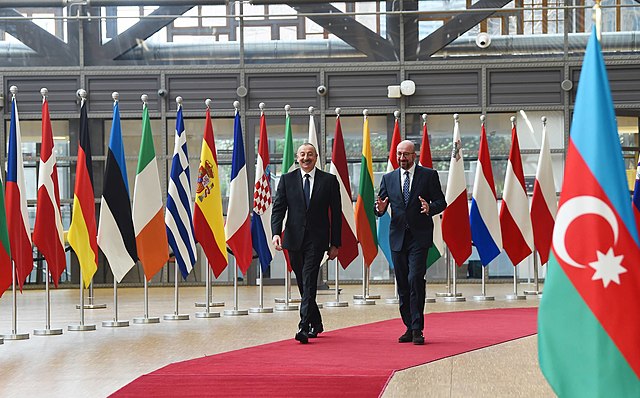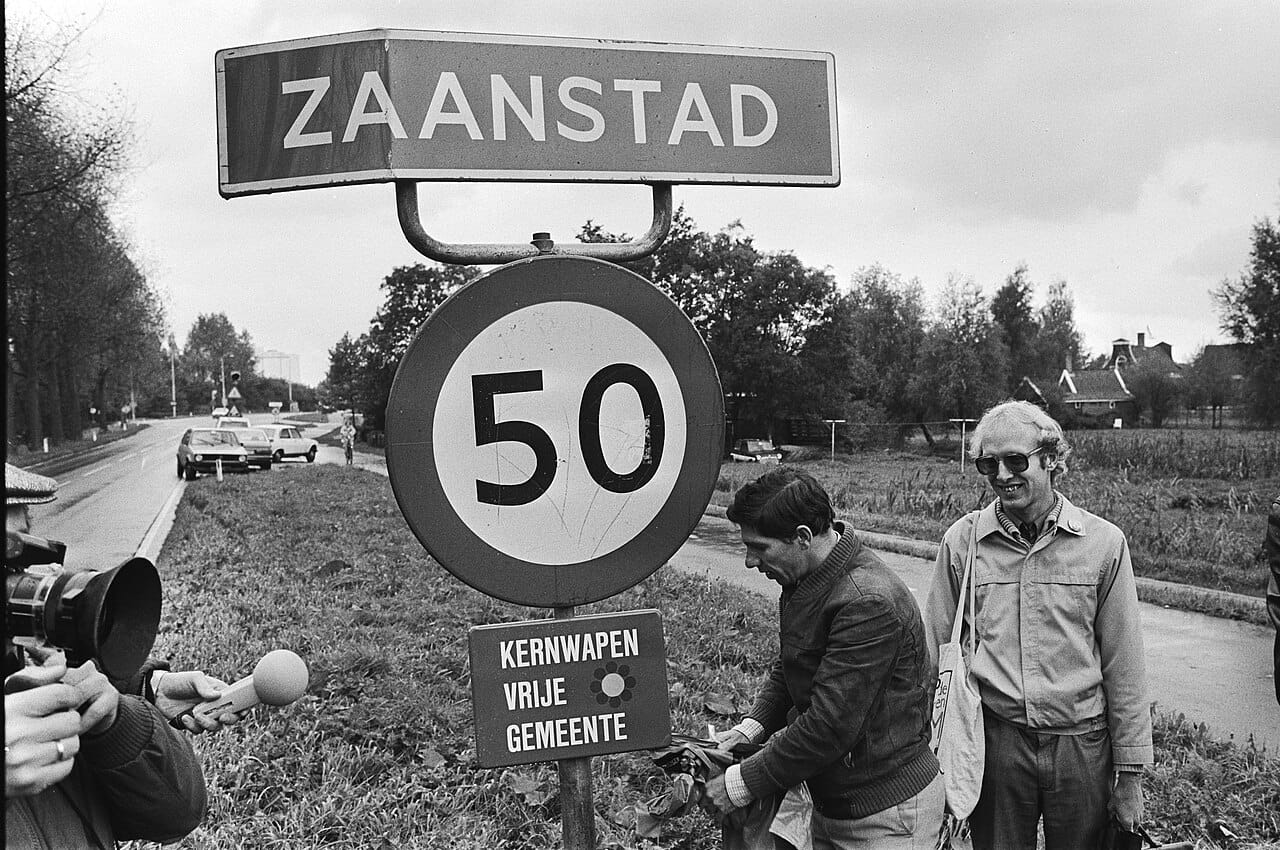Photo: Ilham Aliyev and Charles Michel during a meeting in Brussels (2022) - Wikimedia Commons
Less than a week after Azerbaijan's military offensive in the ethnic Armenian region of Nagorno-Karabakh and the subsequent capitulation of the Armenian authorities, Azerbaijani President Aliyev speaks with his Turkish counterpart Erdogan. On the agenda are talks on creating a land corridor to link the two countries. The so-called Zangezur corridor would run through Armenia towards the Azerbaijani exclave of Nakhichevan, which directly borders Turkey. The talks are taking place as tens of thousands of people flee Nagorno-Karabakh. After months of humanitarian blockades by Azerbaijan, this is the next step in the ethnic cleansing of Nagorno-Karabakh, and meanwhile Armenian authorities have indicated that the Nagorno-Karabakh republic will cease to exist.
Armenian exodus
The only road from Nagorno-Karabakh to Armenia - the Lachin corridor - is jammed with a caravan of Armenians seeking to flee the region. The authorities have Called on the more than 100,000 residents to remain, so that those who are injured and displaced can be evacuated first. According to Armenia, at the moment 30 per cent of local population displaced. It is stressed that everyone will be given a chance to leave the region. The authorities will distribute fuel to allow everyone to participate in the massive exodus that has begun. Despite the Aliyev assurances that Armenian residents of Nagorno-Karabakh will be integrated into Azerbaijani society, with the same (religious) freedoms and rights, hardly any Armenians believe so. Ethnic cleansing is feared under the new Azerbaijani administration of the region, as was also evident earlier in the capture of Nakhichevan. Ruben Vardanyan, one of the political leaders in Nagorno-Karabakh, has been detained by Azerbaijani authorities.
Despite Azerbaijan appearing to get its way in the negotiations with Armenia on the status of Nagorno-Karabakh, the military option still did not appear to be off the table. The months-long humanitarian blockades and subsequent military offensive by Azerbaijan defy all forms of international law. Luis Moreno Ocampo, former chief prosecutor of the International Criminal Court, called the actions of Azerbaijan therefore already ethnic cleansing and even attempted genocide. And those who are currently displaced because their place of residence has become uninhabitable or inaccessible as a result of the Azerbaijani offensive need protection. They are currently the most vulnerable to possible atrocities by Azerbaijani authorities.
Next controversy lurks
With the capitulation of Nagorno-Karabakh, an end to the conflictual relationship between the Armenia and Azerbaijan is certainly not yet in sight. The regime in Baku has already staked its next claim on Armenia. Azerbaijan and historical ally Turkey have made their expressed a desire for a land corridor between the two, as part of Turkey's pan-Turkish agenda. The Zangezur corridor will further cut Armenia off from the outside world - as the border with Iran would be cut off. History shows that after military success, dictators and autocrats often only lay new claims to territories. The Aliyev regime is conducting a systematic campaign of nationalist propaganda and disinformation, which ensures that tensions in the region will not ease any time soon. The claim to the Zangezur corridor is a violation of Armenian sovereignty - tough international pressure from the West will be needed to prevent this from becoming the next point of conflict. International Court of Justice rulings around Nagorno-Karabakh have already shown that merely condemning Azerbaijan is insufficient.
Russia's role?
The relationship between Armenia and Russia has been on edge for some time, especially after the expressed dissatisfaction with inadequate protection of Nagorno-Karabakh by Russia, which was to oversee the post-war peace agreement in 2020. Russia sees conflict between Azerbaijan and Armenia as a pretext to take a paternalistic stance, and seems to have greatly strengthened ties with Baku. With Russian peacekeepers no longer needed in Nagorno-Karabakh, the Kremlin's influence vis-à-vis Yerevan appears to be waning further. This offers an opportunity for the EU and Armenia to further deepen their ties - which has wide support among the Armenian population. Armenia can break free from Russia's grip and move towards democratisation and cooperation with the West.
As the ethnic cleansing of Nagorno-Karabakh unfolds, it is imperative to prevent another (humanitarian) crisis around the Zangezur corridor. The EU should take its responsibility by not shying away from a tough stance against Azerbaijan. The fact that Azerbaijan has been an alternative to gas and oil from Russia since the invasion of Ukraine should not distract attention from Azerbaijan's lax attitude towards international law and respectful inter-state relations. It is time for the EU to speak out more vehemently against Azerbaijan, stand for Armenian sovereignty over the Zangezur corridor and put pressure on the Aliyev regime's allies wherever possible.




